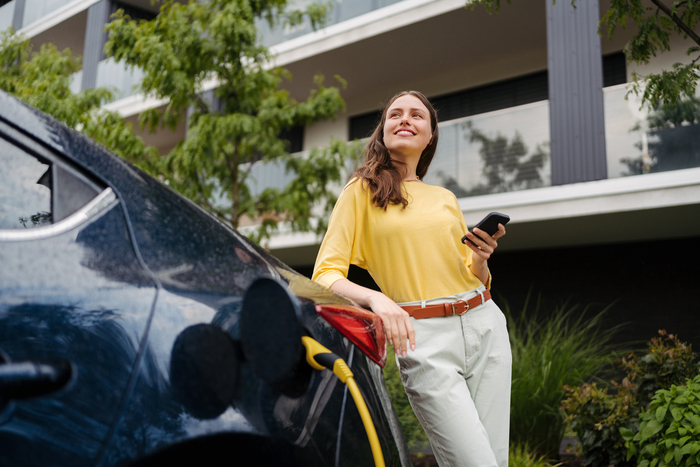The automotive sector is experiencing a profound revolution that it would be simplistic to attribute only to the transition from the combustion engine to the electric. The global production hub is moving from Europe to China, a giant capable of offering advantageous conditions for the development and production of electric vehicles and their components. Furthermore, the sector is called to deal with new methods of use that call into question the concept of private property. From status symbol to 'means of transport', from main subject to extra and more than performance, connectivity and technology count, according to the analysis by Giulia Bianciardi and Elena Vardanega of FutureBrand.
From status symbol to means of transport
Today, thanks to price increases, car sharing services and the growing propensity for practicality and reduction of environmental impact, the car has ceased to constitute a status symbol to return to being a simple means of transport. Buyers can choose which option is most useful and convenient based on the needs of the moment: owning a car - and no longer which car - or opting for a shared car.
The narrative of the car: from performance to experience
Given the range of flexible and personalized options available, cars are in fact a "service" that guarantees more authentic and meaningful experiences. This has changed the narrative which is no longer focused on performance (and therefore on machismo), but on a story that proposes the car as a daily ally, present both in ordinary and special moments.
The car: from main subject to extra
We all have in mind the classic advertisement of a car speeding through infinite landscapes, a symbol of absolute freedom. The imagery is now more concrete and offers tangible examples in which that freedom manifests itself, such as the wonder at something that has never been seen before, inspired by Hyundai in the video ''We make WAH'' (2023). We no longer talk about the car itself, but about who drives it. For its EX30, Volvo focused on ''Little things'' (2023) – those everyday moments that make the ordinary extraordinary. The car is increasingly an ''extra'' in video advertising, but it still manages to convince us that, without it, we wouldn't have the same freedom to live our days.
Points of sale are changing
The evolution of brand imagery towards electrification and the related new narrative has also influenced points of sale. Alongside traditional dealerships, the brands have added real flagship stores, positioned in the most commercial and cool areas of the large metropolises, to convey the new brand philosophy that is closer to lifestyle.
Thus, Volvo and Cupra open multifunctional spaces near Corso Como in Milan, with the aim of bringing the brand experience to life through refined and contemporary environments, halfway between the design shop and the fitness club, where one cannot miss the bar counter. A strategy not very dissimilar to that of Tesla which, since its inception, has opened sales points in large shopping centers such as, for example, the Gae Aulenti one in Milan. By taking advantage of the objective novelty of the product, these stores become information points, which arouse curiosity and explain the new features of Tesla vehicles during shopping. The process of redefining the car purchasing experience is still long, considering that the semiconductor crisis and the geopolitical situation have enormously lengthened the delivery times of new vehicles and greatly reduced the possibility of customizing the car according to own needs and tastes.
The role of the electric (and the hybrid)
In this particular transition phase, the story of the electric is expressed as an integral part of a new everyday life or as a watershed of a new era, in particular in the premium and sport segments. Light years away from the narrative with which the Dodge Charger was presented in 2011 in ''Leader of the human resistance'', ''Make it Real'' shortens the gap between the physical and digital world, putting virtual creator Lil Miquela behind the wheel (8.2 million followers), personification of the new rebels who do not reject technology, but rather embrace progress to build a better future. BMW has thus succeeded in the impossible: exploiting technology and AI to tell what it means to be human, paving the way for unprecedented storytelling for the automotive industry.
The aesthetics of logos: synthetic and minimalist
In Europe there has always been a certain distrust towards car manufacturers without a consolidated heritage. However, the change in perception of cars and the advent of electric vehicles have brought great innovations even among the logos of the most well-known brands. Starting from 2015, Mini's linear and minimalist change of direction gave way to the rebranding of car manufacturers such as Audi, BMW, Fiat, Citroen and KIA, demonstrating that heritage is now a recessive value, no longer capable of make a difference in the impetuous current of globalization. Identities that express movement, lightness and energy work best. There are not many brands that manage to keep their founding values alive, such as Volvo, which has built its strength on safety and reliability, and Alfa Romeo which does not give up its Italian DNA to promote its Tonale.
The automotive world is in full transformation, aesthetics and status symbols are outdated and give way to new priorities such as convenience and emissions reduction. Consumer attention shifts towards the services provided by the cars themselves - connectivity, autonomous driving, system updates... - so car manufacturers no longer highlight the hardware components, but rather the software.
If the car is becoming a product like any other, chosen above all for its practicality and functionality, the way in which brands will communicate in the near future will be empathetic, authentic, capable of building a significant human connection and presenting technology as a value added capable of integrating harmoniously into our daily lives.
Reproduction reserved © Copyright ANSA

